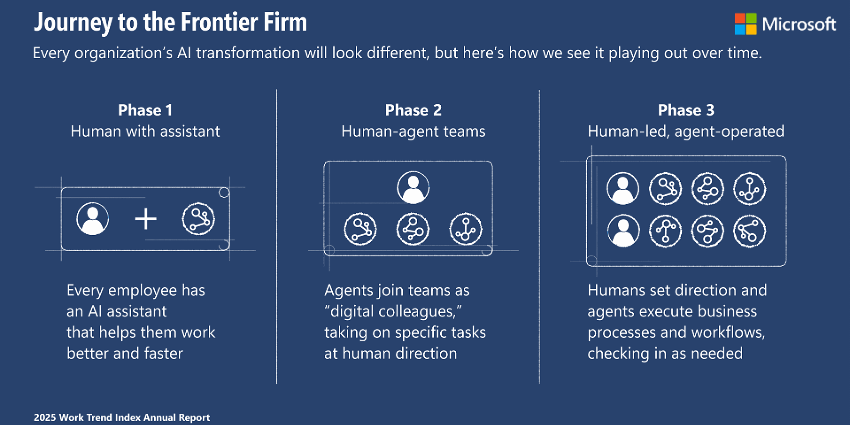ChatGPT might be the biggest name in generative AI chatbots right now – but it’s far from the only option for AI enthusiasts. There hundreds of ChatGPT alternatives available today. Around 2 million developers are even using OpenAI’s GPT API to create similar solutions.
While ChatGPT has definitely earned its position as the “big daddy” of GenAI chatbots – quickly becoming one of the fastest-growing apps of all time – it’s not perfect. All AI tools have strengths and limitations, and ChatGPT is no different.
ChatGPT might be great for general tasks – but what if you want a bot that creates more human responses, excels at code generation, or focuses on a specific use case? I’ve tested dozens of ChatGPT alternatives, to bring you this guide to some of the best options around.
What to Look for in the Best ChatGPT Alternatives
ChatGPT is great. It’s easy to use, versatile, flexible, and inherently useful. You don’t need to be an expert in “AI prompting” to get a great experience with ChatGPT. But there are limitations too. For instance, ChatGPT’s responses aren’t as “human” as those of other bots.
The platform also has limited built-in tools to help you create and manage tasks or optimize complex workflows. If you’re looking for the best ChatGPT alternatives, you’ll want something that replicates everything OpenAI has done well – such as making ChatGPT extremely user-friendly. However, you’ll probably also want more features, capabilities, or unique benefits.
Here’s what a great ChatGPT alternative should do:
- Perform better than ChatGPT in some areas: ChatGPT might be the best general-purpose chatbot, but if you’re looking for an alternative, the chances are you’ll want something that excels at a specific use case. Maybe you want your bot to create more human-sounding responses or be better at processing different types of files.
- Offer a user-friendly experience: ChatGPT excels because it’s so accessible and easy to use. The best ChatGPT alternatives should be just as user-friendly, just as intuitive to work with, and even as easy to customize as ChatGPT.
- Provide excellent responses: Any great generative AI bot should have contextual awareness, the ability to answer queries accurately and support multiple language options. The ability to fine-tune outputs with specific prompts will be helpful too.
- Prioritize security, ethics, and compliance: If you’re using AI tools in the workplace, it’s worth making sure your bot is ethical, compliant, and secure. Make sure you can maintain control over your data (whenever possible).
- Enable easy accessibility: A great ChatGPT alternative doesn’t have to be “free” to be accessible. However, it shouldn’t be locked behind long waiting lists, or require huge amounts of upfront investment.
The Best ChatGPT Alternatives: 11 Amazing Options
There are literally dozens of ChatGPT alternatives out there, and I’ve experimented with more of them than I can count. Over the past few months, I’ve logged countless hours with numerous bots, and some definitely stood out more than others.
One thing worth noting is that these tools are constantly evolving, so you may discover new features in the options I mention when you test them for yourself. You might even find a better bot emerges that performs better in a specific area. At least for now, here are the ChatGPT alternatives I recommend.
1. Claude: Best ChatGPT Alternative for Human Responses
Let’s start with arguably the most popular ChatGPT alternative – Claude. Created by Anthropic, Claude excels at creating human-like content, summarizing documents, and analyzing data. Its default writing style definitely feels more natural than ChatGPT.
Plus, Claude is excellent at mimicking a person’s specific voice, tone, and style. It’s also one of the top ChatGPT alternatives built with ethics in mind. Anthropic focused on creating a bot that’s helpful, honest, and “harmless.” Overall, it feels like a more empathetic bot than ChatGPT (if such a thing exists) and gives you a lot of control over your data.
Plus, ChatGPT has a lot of unique features that make it more impressive than ChatGPT in certain ways. For instance, Claude has a 200,000 token context window across all models. ChatGPT tops out with a token window of 128,000 with GPT-4o.
It also gives users a handy “artifacts” window, where they can make more granular edits to the content that Claude generates without having to start from scratch.
Pricing: Free version, with paid plans starting at $20 per month.
| Pros | Cons |
| · More human, natural and empathetic responses than ChatGPT.
· Excellent editing options. · Longer context window than ChatGPT. · Enhanced ethical and security features. |
· Can be a little sluggish at times.
· Can’t generate images. · Not connected to the web. |
2. Google Gemini: Best for Google Ecosystem Users
Google Gemini is a fantastic multimodal generative AI solution, that integrates seamlessly into the Google ecosystem. This high-powered bot can analyze text and images, create content, answer questions, and provide access to real-time web data.
It also embeds seamlessly into a host of Google tools, including Google Search (with AI overviews), Google Workspace, Docs, and Sheets. If you spend a lot of time with Google Apps, ranging from Gmail to YouTube, Google Gemini will feel like the most natural ChatGPT alternative for you.
Though it does have some limitations – such as suffering from occasional AI hallucinations, it’s a fantastic add-on to your everyday web-based work experience.
Additionally, it’s worth noting that like OpenAI, Google does offer access to APIs and LLM development tools so you can customize the Gemini experience based on your needs.
Pricing: Free options, with paid plans starting at $19.99 per month.
| Pros | Cons |
| · Excellent multimodal functionality.
· Seamless integration with Google applications and tools. · Includes access to real-time web data. · Can summarize YouTube videos from a URL. |
· Struggles with some coding and programming tasks.
· Often suffers from AI hallucinations.
|
3. GitHub Copilot: Best for Coding Support
GitHub Copilot was created by GitHub in collaboration with OpenAI. It helps developers improve software code in real-time, with intuitive suggestions, auto-complete options, and automatic block generation based on context.
The solution integrates directly into a user’s integrated development environment, and has been trained on countless open-source projects using different programming languages. The bot can recognize patterns in your code structure to recognize issues, and translate code into different languages. Plus, it offers end-to-end terminal assistance.
Though GitHub Copilot is definitely more “niche” than ChatGPT, it’s excellent for use cases in the programming and development landscape. The bot can even help you improve your coding knowledge, with custom knowledge bases and answers to programming questions.
Pricing: Pricing starts at $10 per user, per month.
| Pros | Cons |
| · Fantastic coding and programming capabilities.
· Excellent customization options for project-specific requirements. · Connects seamlessly with various IDE options. · Great for automating repetitive tasks with exceptional accuracy. |
· Limited to software development use cases.
· Can struggle with some complex coding tasks. · May have some security vulnerabilities.
|
4. Microsoft Copilot: Best Microsoft Integrated Alternative
Microsoft is an OpenAI investor, and has developed a strong relationship with the ChatGPT creator over the years. The Copilot assistant from Microsoft, available on Bing, Microsoft 365 apps, laptops, computers, and Windows does feature some of the same models at ChatGPT.
However, like most ChatGPT alternatives, Microsoft Copilot gives users a very different experience. First, Copilot is seamlessly integrated into all of Microsoft’s tools, meaning you don’t have to access a separate app to use it with Microsoft Teams, Bing Search, or even Word.
Secondly, depending on your plan, Microsoft’s Copilot can draw unique data from your “Microsoft Graph” ecosystem to customize its responses according to your specific needs.
On top of that, Copilot is a lot more flexible overall. It can support you through video meetings and calls, help you create projects and assign tasks to team members, and more.
Pricing: Some free options, with paid plans starting at $20 per month.
| Pros | Cons |
| · Highly versatile range of use cases.
· Excellent for automating repetitive tasks. · Great for team collaboration, with the Microsoft Teams integration. · Seamless connectivity to Microsoft’s ecosystem. |
· Pricing can be expensive.
· Limited to Microsoft users.
|
5. Zapier Central: Best ChatGPT Alternative for Creating Bots
A relatively new addition to the Zapier ecosystem, Zapier Central is an experimental “workplace” where users can collaborate with AI assistants across a range of more than 7,000 applications. You can create, customize, and teach AI bots to work however you like, and even bridge the gaps between the various applications they might use for workflows.
Basically, Zapier allows users to create mini intelligent teammates they can use to handle all kinds of specific tasks, like searching the web or analyzing data. You don’t need any coding knowledge to get started either. All you need to do is create simple workflows that allow the bots to respond to triggers from other apps.
Zapier Central gives you hundreds of ways to automate work, whether you’re creating content, supporting customers, managing projects, or just searching for information. Plus, the bots can tap into your own proprietary data too.
Pricing: Free for beginners, with paid plans starting at $50 per month.
| Pros | Cons |
| · Excellent no-code workflow development.
· Integrations with thousands of business apps. · Highly customizable AI bots. · Endless use cases. |
· Slightly expensive pricing.
· May have a small learning curve.
|
6. Perplexity: The Best ChatGPT Alternative for Search
Technically, Perplexity is a ChatGPT alternative – but it’s more than that. It’s an alternative to the traditional search engine experience too. The solution works a lot like a conversational chatbot, but it’s focused on delivering up-to-date answers to questions you might otherwise type into Google.
You can use multiple models within the Perplexity platform, including in-house models, GPT 4, Claude, Mistral, and more. Plus, Perplexity delivers more sources and citations in its answers than you’d get from ChatGPT, helping you to fact-check your research.
Obviously, ChatGPT has its own “SearchGPT” solution for online search, but Perplexity AI summarizes information from more sources, and performs better at fact-checking. It also has a fantastic “Focus feature”, which allows you to define where you want to source answers from.
Pricing: Free options with paid plans starting at $20 per month.
| Pros | Cons |
| · Excellent online search experience with up-to-date sources.
· Access to a wide range of customization options. · Great for citations and in-depth research. · User-friendly interface for beginners. |
· Limited content creation options.
· Can occasionally hallucinate.
|
7. Meta AI: Best for Social Media Integrations
I’ve been using Meta AI for a while now, and although it’s not quite as powerful as ChatGPT in some areas – it still has some unique benefits. If you’re looking for a way to upgrade your social media game, for instance, Meta AI is probably the best ChatGPT alternative for you.
It offers creative features across a range of platforms from Facebook and WhatsApp to Instagram. With it, you can edit photos, recognize objects in images, generate captions, and more. Plus, you can ask Meta AI for more information about something mentioned in a post, and chat with the bot on your social media platforms.
Probably the biggest thing that sets Meta AI apart from ChatGPT, however, is that it’s completely free to use. There are no plans you need to pay for if you want to take advantage of this tool. You can even access the Llama 3 model that powers this bot for free.
Pricing: Free
| Pros | Cons |
| · Open-source options with Llama 3
· Instant integration with all of Meta’s social media platforms. · Completely free. · Easy to use (with voice interaction available). |
· Limited advanced features.
· Not available in some languages and regions.
|
8. Jasper: Best for Content Creation
There are a lot of great tools out there that use LLM technology to enable rapid-scale content production and optimization. Jasper is my favorite option all around, particularly for marketers who want access to a lot of advanced features.
Jasper can create all kinds of content instantly, from multiple variations of ad copy to social media captions, email campaigns, and long-form articles. It also has some fantastic brand voice and knowledge base features to ensure it can capture your brand’s style and tone.
Additionally, Jasper will also prompt you to provide more details on the content you want to create, making it easier to have valuable, productive conversations with the bot. You can even access an “Enhance Prompt” button if you need help choosing the right prompt.
Jasper also comes with an extensive library of templates to help you create content faster, and it can optimize your posts for SEO.
Pricing: Starting at $49 per user, per month.
| Pros | Cons |
| · Excellent at capturing your unique brand voice and tone.
· Can create a wide range of different types of content. · Optimizes content for the search engine result pages. · Offers access to various templates, tools, and prompting support. |
· Expensive pricing.
· The learning curve can be steep for some advanced features.
|
9. SEMRush ContentShake: Best for SEO
I had a hard time choosing the best ChatGPT alternative for search engine optimization. There are some really amazing options out there, including Surfer AI – which is ideal for creating robust SEO workflows and plans. However, ContentShake from SEMRush really stands out for a few reasons.
First, it integrates with SEMRush’s keyword research tools – which I already use on a daily basis (alongside a lot of marketers). Secondly, it can do a lot more than just develop SEO-ready content. ContentShake can help you find content ideas based on your target audience and what’s ranking in your industry. It can help you analyze keyword performance based on search intent too.
You can also use it to create content, from articles and news reports to blog posts and social media captions. Once you’ve created content, you can also use the AI Chat and user-friendly editor to make granular changes to everything you produce.
Plus, SEMRush ensures you can make your content sound human and natural, rather than just plugging a certain number of keywords into a topic.
Pricing: Starting at $60 per month.
| Pros | Cons |
| · Instant integration with SEMRush’s SEO toolkit.
· Fantastic for creating content ideas, briefs, and outlines. · Real-time recommendations on keywords and audience insights. · Can adapt content to your specific brand voice and tone. |
· Expensive pricing.
· Best for users familiar with the SEMRush ecosystem. |
10. ClickUp AI: Best for Project Management
ClickUp is a brilliant AI-driven project management tool. While it’s far from the only ChatGPT alternative in this category, there are a lot of features in ClickUp that make it a great pick for coordinating your team. ClickUp Brain, the AI feature within ClickUp harnesses AI to help you create project plans and workflows, organize and generate content, and manage company knowledge.
You can use natural language queries to track down relevant information across your workflows with this tool, access one-click updates and status reports, and even analyze data. Plus, the integrated AI writer can actually draw from your knowledge bases to create contextual content.
It can even design templates, transcripts, tables, and other forms of content in a couple of clicks. Plus, you can embed ClickUp AI into a range of different tools for customer management, workflow management, engagement, and more.
Pricing: Free plan with paid plans starting at $7 per month.
| Pros | Cons |
| · Excellent integration with your existing data and workflows.
· Fantastic range of use cases, including AI content creation. · User-friendly chat experience. · Flexible workflow builder. · Pre-built prompts and templates. |
· Requires a ClickUp subscription.
· Slight learning curve for beginners. |
11. NotebookLM: Best ChatGPT Alternative for Research
Technically, there are quite a few ChatGPT alternatives that are great for research and learning—like Elicit, the AI-powered data gathering tool. However, NotebookLM is probably my favorite option. It was created by Google and is powered by Gemini 1.5, which means it has fantastic multimodal capabilities.
Unlike most traditional chatbots, NotebookLM also only uses the information you upload, such as PDFs or text, to provide answers to queries. This makes it ideal for people who want to dive into their existing data to surface insights humans might have missed.
NotebookLM will show you where it got the source of its answers, so you can verify accuracy. Plus, you can use this tool to convert content into different formats, like audio overviews. As an added bonus, Google doesn’t use any of your personal data to train NotebookLM.
Pricing: Currently free in the testing phase.
| Pros | Cons |
| · Fantastic multimodal capabilities.
· Fewer hallucinations than most ChatGPT alternatives. · Works with existing Google tools. · Excellent data privacy and security. |
· Still in the early stages of development.
· Only uses the content you upload to provide answers. |
Which ChatGPT Alternative is Best?
The number of ChatGPT alternatives available to users is growing phenomenally. I only covered a handful of options here, focused on specific use cases.
However, plenty of other solutions are out there, from MidJourney for image creation to Socratic for predictive engineering management. Ultimately, the best option for you all depends on what you want to accomplish with AI.
If you’re looking for something very similar to ChatGPT that can create more human-sounding content in a more ethical way, Claude might be your best bet. However, if you want a solution for marketing, you might choose ContentShake for SEO, Jasper for content creation, or ClickUp Brain for project management.
It’s also worth noting that you’re not necessarily limited to just one ChatGPT alternative. You can use as many different tools as you like for various use cases. Just keep in mind that not all of these tools are available for free.
To make the best decision, I recommend taking my approach. Get out there and test some of the alternatives mentioned above for yourself. Find out whether they can really solve your workflow problems, or deliver benefits ChatGPT can’t.
That way, you’ll be able to built the perfect AI toolkit, specific to your needs.








